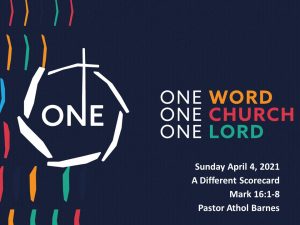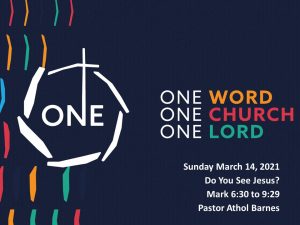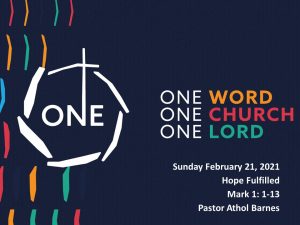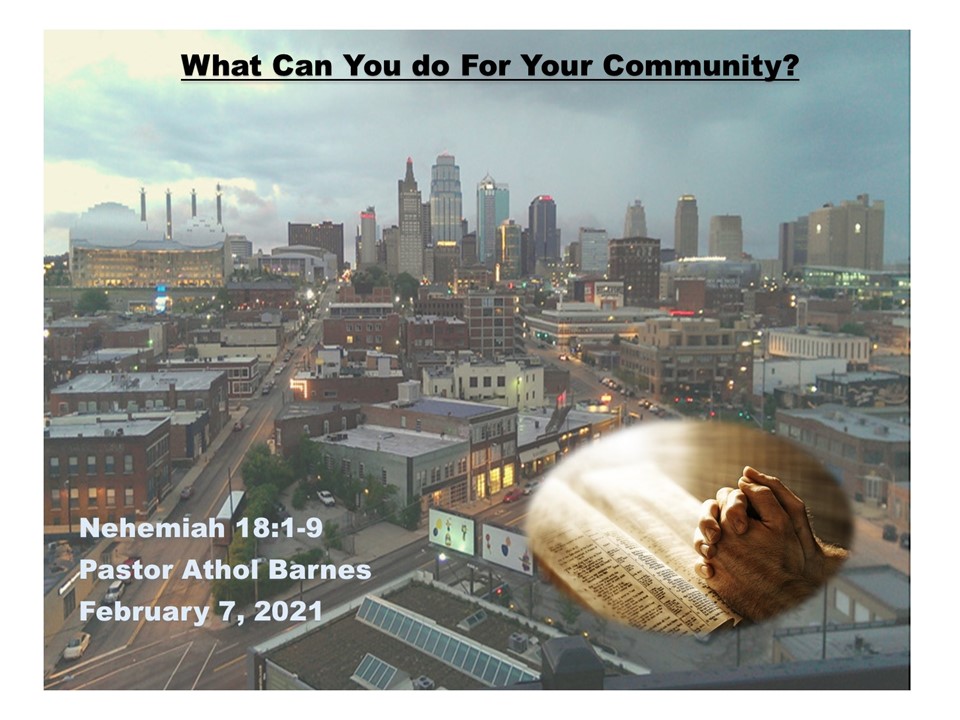
Mark 16:1-8
In the closing section of Mark’s Gospel we have the well-known record of the three women who were the first to witness the empty tomb of Jesus. What we often fail to notice is that they were filled with fear. The last three words of verse 8 says, “…they were afraid”.
The good news of their risen Lord was clouded by their intense emotions.
We have all experienced the intense emotion of fear. Sometimes when someone intentionally scares us suddenly or when we encounter something that has the potential to cause us loss or harm. Our world in the past year has been driven by fear. The news media and marketing companies have thrived on creating and sustaining fear. There is the fear of getting sick, the fear of losing a loved one, the fear of losing one’s source of income and the fear of life not getting back to normal, whatever that means! Many people have the fear of not being “liked” on social media or being on the wrong side of a prominent social justice issue.
What are you most afraid of right now? How are you coping with these fears?
Fear is not a bad emotion. God designed us to have and experience fear as part of our survival instinct and human connection. Fear is an emotion that we are created with. If you read the Bible, you will notice that one of the most often repeated commands in scripture is, “do not fear”. But simply repeating this, does not automatically remove fear from our lives.
The key is not allowing our fears to control our lives. So, the answer is to choose a better fear, to tremble at something bigger. We need to see our daily fears in perspective. We need to understand that fear is not the problem, rather we misplace our fear. Jesus said to his disciples in Matthew 10:28, “And do not fear those who kill the body but cannot kill the soul. Rather fear him who can destroy both soul and body in hell.”
The difference that Jesus is referring to is this, where does the fear lead us? Fear either leads us to self-preservation or to faith. Only faith can ultimately save us.
J.B. Philipps wrote a book that captures this excellently called, “Your God is too small”. When we walk in fear, it is a result of the fact that we’ve made God too small, reducing Him to our preferences, holding him captive to our desires, projecting on to him our own sensibilities?
Jesus says the Living God is so much bigger than this, we need to fear Him.
Another potential problem is that our fear is too small. Jesus essentially is telling his disciples to have a bigger fear. We need to develop a healthy fear of the One who created and holds all things together. In short, we don’t fear the Living God (Ps. 111:10).
Bible teachers often soften this by saying that this word fear means respect, or reverence. But what if the Bible really means being afraid, when it connects fear to the majesty of God over 300 times. I would suggest that we miss the point and the clear teaching of Scripture; God is terrifying in His majesty. Hebrews 12:29 says that our God is a consuming fire!
Probably the greatest weakness of the church is that we have reduced God to a comfortable being who is waiting to give us whatever we desire, whenever we ask Him. We have lost our fear of God and when we lose our fear in God, we will fear everything else.
When we fear something, we give that fear power over us. And left unattended, fear grows and develops into patterns of behavior, and we begin to live afraid. Worship is the act of giving value to something. When we fear things and uncertainties more then God, we have made an idol out of fear.
But the good news is that in the very next verse in Matthew 10, Jesus assures his disciples that they do not have to live in condemnation to fear. Matthew 10:29-31 says, “Are not two sparrows sold for a penny? And not one of them will fall to the ground apart from your Father. 30 But even the hairs of your head are all numbered. 31 Fear not, therefore; you are of more value than many sparrows.”
Immediately after telling us to fear God, Jesus tells us not to be afraid. Jesus said that when we fear God, we can rest in His ability to protect and provide for all our needs. God is not only all-powerful, He is also love and is intimately involved in every aspect of our lives.
This is why the empty grave that we celebrated this past Sunday is so important. The empty grave confirms that we serve a living God who gave his life for us and overcame death in order to purchase our freedom. We can echo what Paul said in Romans 8:38-39.
As a result, in the midst of our 21st century anxiety and fears, we can say, “Cheer Up”, the risen one is calling you. And that’s the difference. The women at the empty grave chose a better fear. They were trembling, bewildered and afraid before an empty grave, not an empty life. The grave was empty, but their hearts were full. They were trembling, bewildered and afraid, because they were encountering the power and presence of the living God.
Do you long to tremble like that? When was the last time you felt like you were standing on holy ground too afraid to speak?
Is your God too small? Are your fears too small?
Choose today a bigger fear, tremble at an empty grave.
Jesus is inviting you to look into the empty tomb today to see what he did for you so that you can stand in holy fear before God with your sins removed, and be able to call Him Father.










